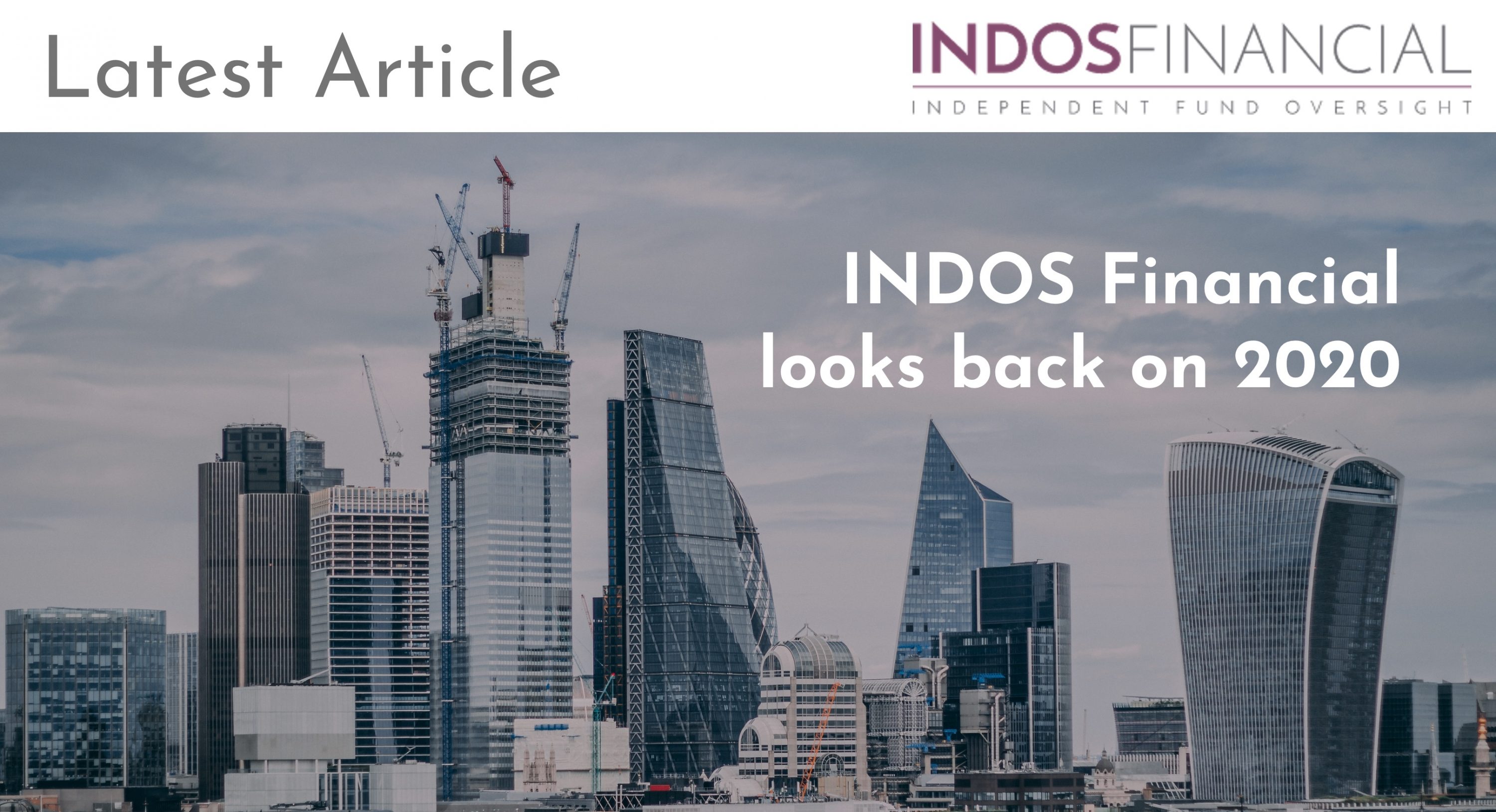2020 has been without precedent. What started as a largely positive year for the asset management industry and service provider community was derailed in February and March as the seriousness of COVID-19 became increasingly acute. INDOS Financial reflects on the last 12 volatile months and explores some of the momentous changes which have swept across the financial services industry.
COVID-19: The moment the world changed
COVID-19 is a once in a century crisis, but asset managers have proven resilient. While some fund houses did struggle with the logistics of working from home initially, business has largely continued with limited disruption to operations. That the industry was able to navigate this sudden transition so seamlessly is reflective of its significant investment into business continuity planning (BCP). BCP and operational resiliency have been areas of scrutiny among institutional investors and regulators such as the UK’s Financial Conduct Authority (FCA) for several years now. Consequentially, many global asset managers had well-drilled BCP processes in place well ahead of the COVID-19 pandemic.
Longer-term challenges of COVID-19 still persist. Working from home and the ongoing inability to physically meet with or travel to prospective investors has made fundraising more difficult. Similarly, some institutional investors are not entirely comfortable with conducting operational due diligences on fund managers remotely through video links. This is particularly true in cases where there is no pre-existing relationship. As a result, the number of investment mandates being awarded during this period has slowed. Keen to avoid any additional unnecessary operational challenges, a number of managers have also delayed making changes to their operating and service provider models.
ESG given a boost
Few positives have emerged from COVID-19, although the continued rise in interest in ESG (environment, social, governance) investing is one of them. In fact, ESG-orientated investment products registered net inflows during the crisis. Data shows European sustainable funds attracted around €30 billion in the first three months of 2020, whereas European-based funds overall shed €148 billion. It is projected that investors will continue to allocate into ESG products as a result of COVID-19. Federated Hermes found 85% of its UK independent financial advisers had reported a jump in clients asking to allocate capital into ESG products since the beginning of COVID-19. These impressive inflows come as ESG funds reported outperformance during the pandemic, evidenced by recent BlackRock data which found 94% of sustainable indices beat their parent benchmarks in Q1.
The governance focus continues
Despite the market dislocation, regulators have been keen to stress the importance of robust fund governance. In 2020, the Cayman Islands pushed ahead with its Private Funds Law, which subjects private equity firms to regulatory registration requirements and depositary provisions effectively modelled on the EU’s AIFMD (Alternative Investment Fund Managers Directive). COVID-19 has highlighted how important it is for asset managers to embrace best practices when it comes to fund governance and oversight. Irrespective of the pandemic, it is critical that managers and fund boards do not let standards slip otherwise the interests of investors risk being compromised during this difficult time.
Delegation under review
As Brexit rapidly approaches, UK asset managers are concerned that the existing delegation framework could be materially altered for the worse by EU regulators. Right now, third country managers can appoint an EU management company, who will outsource investment management back to the manager allowing them to distribute their products cross-border without impediment. In a letter penned over the Summer, the European Securities and Markets Authority (ESMA) made public some of its objections about delegation, warning that the current set up carried operational and supervisory risks. Although it is unlikely delegation will be outlawed, there is a possibility it could be restricted making it harder for third country managers to sell their funds inside the EU. Any attempt to limit delegation will, however, result in pushback across an industry that is keen to ensure an open global market for asset management.
Facing the new reality
Asset managers demonstrated remarkable agility and quick thinking when COVID-19 struck. With the pandemic now approaching its ninth month, the industry has adjusted to the changing circumstances. At the same time, the crisis has reaffirmed the role of ESG as an investment strategy in its own right and the continued importance of effective fund governance.




